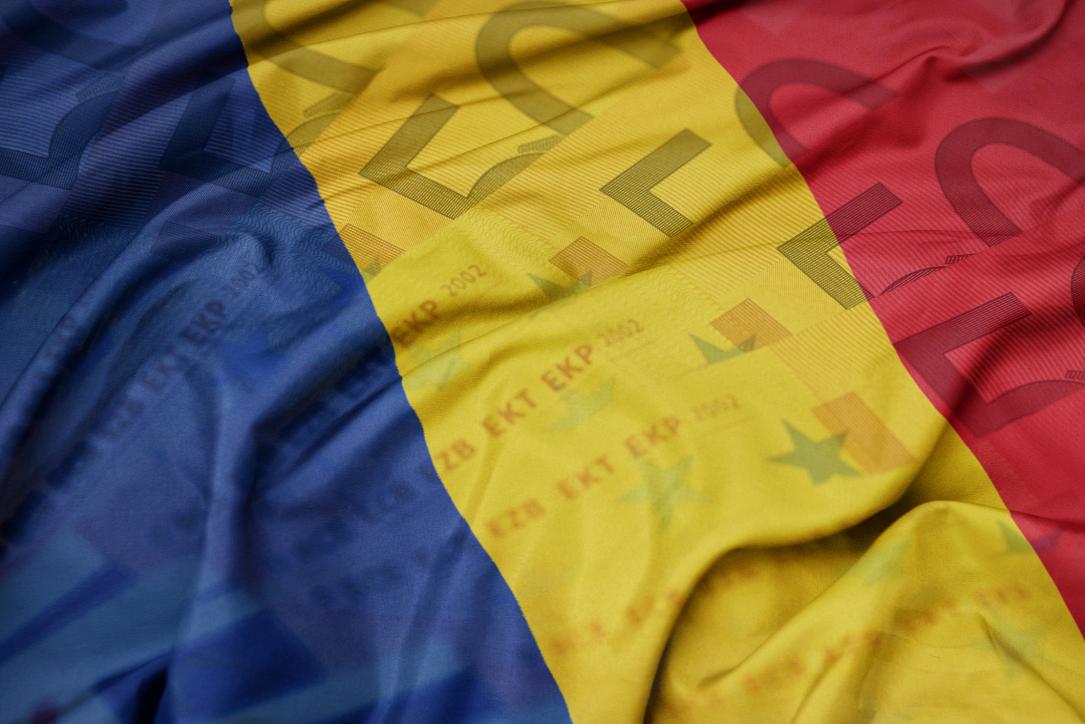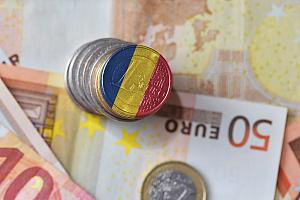The economic plans of Romanian presidential candidates Nicuşor Dan and George Simion

Nicuşor Dan and George Simion propose sharply contrasting economic strategies ahead of Romania's presidential election. Economic online portal Economica put together the key elements of the economic strategies of the two presidential candidates who face each other on May 18.
Dan's programme, Honest Romania Vision, takes a gradualist approach, aiming for convergence with the European Union's market-based economic model and regulatory framework. His plan focuses on modernising state institutions, combating corruption, and fostering innovation through partnerships with democratic states. Key measures include digitalising the tax authority, ensuring fair taxation, reducing bureaucracy, and supporting both emerging technologies and traditional sectors like energy and automotive. He promotes energy security via a national strategic company, alongside stable, predictable conditions for private investment.
In contrast, Simion's We rebuild Romania plan embraces economic nationalism and heavy state involvement. It prioritizes retaining control over natural resources, reindustrializing through domestic production, reintroducing energy market regulation, and establishing a sovereign investment fund to finance public deficits and national projects. Simion also proposes aggressive tax cuts on labour, simplified corporate taxation, and mandatory stock listings, with a focus on retaining capital within Romania's borders.
In his presidential program, Nicuşor Dan promises to wage an "efficient" fight against corruption. The prosecutors' offices, especially the DNA, must systematically address the major areas of corruption: tax evasion, the real estate mafia, and the timber mafia. It is also necessary to strengthen actions against drug trafficking.
Dan aims to reduce strategic economic dependencies in the fields of energy, technology, and supply chains through innovation and partnerships with democratic states in Europe and the Indo-Pacific region (Japan, South Korea, Australia). Romania must avoid technological dependence on authoritarian regimes such as China, says Dan in his presidential program.
Dan also says that Romania must fully participate in European decision-making processes in areas of national interest: negotiating the new multiannual financial framework, strengthening the ReArm program, EU enlargement to the Republic of Moldova and the Western Balkans, as well as increasing the competitiveness of the European economy.
Nicuşor Dan envisages economic growth through several key measures:
# Digitalization of ANAF and combating large-scale tax evasion.
# Stopping tax evasion from imports, which creates unfair competition for Romanian companies.
#Creating an integrated energy holding of regional importance that is capable of ensuring Romania's energy security, providing energy at competitive and predictable prices, and supporting large long-term investments.
# Fair taxation and eliminating political favoritism
# The state will support economic development in strategic areas: on the one hand, emerging technologies like artificial intelligence, cybersecurity, and semiconductors; on the other hand, sectors in which Romania already has competitive advantages: energy and the automotive industry.
# Ensuring a favorable framework for private investments by reducing bureaucracy in relations with state institutions, proportional controls by control authorities, and fiscal predictability without tax changes from one day to the next.
# Simplifying access to European funds.
# Development of the agro-industrial sector to expand processing and export capacities with added value, to capitalize on agricultural potential and creating economic ecosystems comparable to those in Western Europe.
# Investments in the irrigation system.
# Depoliticization of state-owned companies.
The strategy of AUR reflects the vision supported by the George Simion.
# Reducing unjustified spending by the budgetary "aristocracy."
# State aid is directed exclusively to industrial projects with high added value and a high degree of processing and use of industrial robots.
# Construction, in the next four years, of energy and petrochemical capacities that will guarantee the processing in the country of gas extracted from the Black Sea.
# No molecule of gas should leave the country, and production from the Black Sea and Caragele will be the basis for the country's reindustrialization.
# Construction, by Hidroelectrica, of the Tarnița-Lăpuștești pumped-storage hydroelectric power plant and completion of works on all hydroelectric power plants under construction.
# Completion, within a maximum of one year, of works on the gas-fired power plants in Iernut and Brăila and their commissioning.
# Keeping the current coal-fired production capacities in Rovinari and Turceni functional and completing, in the next four years, the three gas-fired power plants built in partnership with CEO, plus the power plant in Mintia.
# Elimination of the possibility for a private company to own both distribution and supply in a certain geographical area.
#Reorienting the gas transportation system to meet domestic needs, not to export resources.
# Returning to energy market regulation, the state must establish a company to supply natural gas to the population, must open Nuclearelectrica to consumers in Romania, limit the role of intermediaries and build a state intermediary (distributor) that can sell energy externally, at a fair price, argues AUR.
# Mandatory listing of any company with an annual turnover of over 100 million euros;
# Mandatory listing of any bank operating in the country;
# Issuance of corporate bonds by large energy companies or state-owned banks primarily on the domestic capital market and primarily to retail investors (individual Romanian citizens).
# Drastic reduction of taxes, contributions to the pension, social security and health systems, up to a maximum cumulative level of 25% of the employee's salary, for the first RON 5,000 of the gross salary.
# Increasing the minimum wage in steps, up to 5,000 lei gross (from RON 4,050 currently) over a period of 3 years, keeping the absolute value of contributions unchanged, for the first RON 5,000, of any salary (so it does not apply only to a part of employees, all will be beneficiaries of this measure).
The plan for taxing companies is insufficiently explained and contains ambiguities
# A company will be controlled by the Tax Authorities no more than once yearly if no other irregularities are found.
# For small and medium-sized companies, AUR proposes that the profit tax be replaced by a 2% turnover tax.
# For companies with a turnover of less than EUR 5 million, AUR proposes a 2% turnover tax instead of the profit tax.
# The plan also states that this measure will be applied optionally, in the sense that companies can opt, upon request, for the application of the profit tax.
# For companies with a turnover equal to or greater than EUR 5 million, AUR proposes applying a 16% profit tax.
# The turnover tax will be applied to total revenues. Therefore, it would discourage tax evasion practices aimed at artificially reducing profits.
# Companies with a turnover of more than EUR 50 million will pay an annual profit tax of 16%, but not less than 1% of turnover, says AUR.
As an effect of the taxation system, AUR argues that the companies will no longer be inclined to export their profits but will declare them in Romania and keep these amounts in the country to reinvest them.
AUR also advocates for a Sovereign Investment Fund of Romania (SIFR)
The financing of the SIFR will be ensured through four mechanisms:
# directing royalties and exploitation and licensing fees to the SIFR for companies that exploit hydrocarbons, mineral resources, and companies that operate in the field of electricity production.
# 50% of the dividends paid to the Romanian state by the companies in which it is a shareholder (Hidroelectrica, Transgaz, Nuclearelectrica, RomGaz, OMV, Engie, EON, Chimcomplex, Conpet, Transelectrica, CupruMin, Oil Terminal, Unifarm, National Mineral Waters Society, Romanian Lottery, Ports Administration, etc.)
# issuance of bonds. SIFR will issue certain types of corporate bonds under preferential conditions, to which only Romanian citizens or state-owned companies will have access.
# Own income once SIFR becomes functional and has placements and investments.
The SIFR will be an independent entity, owned by the Ministry of Finance, to which the principle of corporate governance will be applied, in which the political factor must have as little importance as possible.
SIFR will use the money for the following:
# Financing the budget deficit by the criteria assumed by the Maastricht Treaty. SIFR can purchase, at fair/preferential interest rates, the Romanian state's bond issues. Basically, the state will no longer borrow from external creditors but from its own financial instrument built for this purpose, AUR claims.
# financing guarantee and credit mechanisms for various economic activities.
(Photo: Ruletkka/ Dreamstime)
iulian@romania-insider.com













